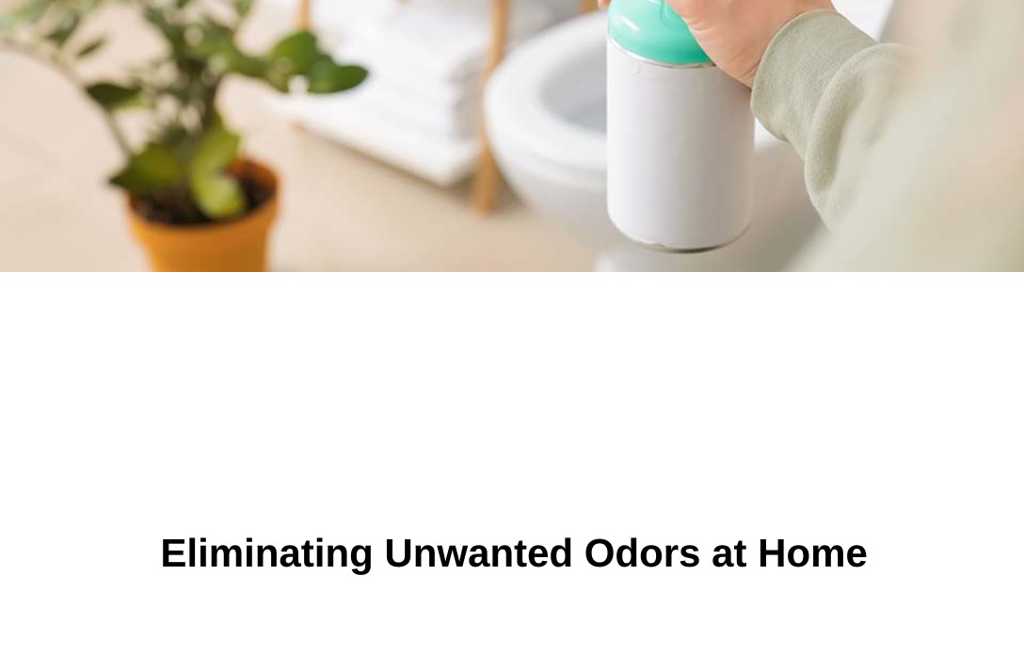**How to Really Eliminate Bad Odors at Home: A Step-by-Step Guide from Experts on Removing Smells in Your Apartment**
*”Such is life!”*—a perfect phrase from Karlsson that describes the nuisance of unpleasant odors in your home. Sources of stench in a living space can be countless. Sometimes it doesn’t even come from outside—occasionally, we neglect hygiene, act carelessly, and later find ourselves holding our noses. Our sense of smell is especially sharp when we first step indoors after being outside. After a few minutes, our receptors dull. That’s how our body works: the brain *blocks* discomfort, making the stink seem to fade—though in reality, it’s still there. Here’s how to actually remove household odors.
### **Causes of Bad Odors in Apartments**
Unpleasant smells don’t appear out of nowhere—there’s always a source. Possible culprits include:
– **Spoiled food**—Not everything is stored in the fridge. Fruits and vegetables, for example, often sit in kitchen cabinets. Check for anything rotten that needs tossing.
– **Pets**—A treasure trove of aromas. No matter how clean cats are, they follow their own habits. Their bathroom might end up being shoes, a closet corner, or even your bed. Dogs, meanwhile, adore rolling in foul-smelling substances outdoors, then tracking them inside—they genuinely think it’s a *great* scent.
– **Old plumbing or clogged drains**—A likely source of reek.
– **Neighbors**—Smells can travel through vents. Hoarding (*Plyushkin syndrome*) is common in cities. Worse, if someone passes away unnoticed next door, the odor lingers until authorities intervene.
– **Hallway smells**—Often from jammed garbage chutes, worse in summer. Many newer buildings seal them off.
– **Pollution**—A city problem. Cars, power plants, and factories emit not just CO₂ but also burnt byproducts.
– **Construction workers’ “gifts”**—A rotten egg or rat walled up in ventilation? Disgruntled workers’ revenge isn’t just an urban legend.
### **Effective Odor Removal Methods**
#### **Urine Smell**
For bedding or clothes, machine-wash with strong detergent and conditioner, adding an extra rinse.
– **Furniture, floors, and hard surfaces**: Sprinkle baking soda, wipe with hydrogen peroxide, then repeat after 12 hours (vacuuming up residue). Pre-treating with diluted vinegar (3–4 tbsp per 200ml water) helps. Iodine, bleach, or potassium permanganate solutions also work—*but bleach harms pets, and others may stain*,” says Arthur Kochetarov, a cleaning company owner.
Skip DIY experiments—opt for store-bought pet-safe cleaners. High-end products are often hypoallergenic.
For *maximum ease*, hire pros. Their industrial-grade products neutralize odors, and you’ll get a clean home—*but it’s pricey*.
#### **Pet Odors**
The best fix? Visit a pet store for enzyme sprays that neutralize animal mess smells. Downsides: large bottles (500–750ml) cost 600–1000 RUB, yet you’ll only need a few spritzes.
These *actually work*. As someone who’s battled pet smells, I’ve seen results in one use. A single bottle gets passed around relatives, endlessly effective on shoes, floors, and laundry. Apply, wait 15–20 minutes, rinse—odor gone.
DIY options: peroxide-vinegar mix (1:4), baking soda, or activated charcoal tablets. *Never* mask smells with perfume or air fresheners—they’ll just blend into a worse stench.
#### **Burning Smell**
Among the toughest odors, especially after fires. Smoke saturates walls, even wallpaper.
1. **Ventilate aggressively** for hours to clear the worst fumes.
2. Clean with bleach, baking soda, or citric acid—*but specialized odor absorbers work better*. Their gel formula traps smells, though coverage is limited (buy multiples).
– “Try coffee beans, vanilla, or Eastern sublimated incense (sold in cubes/cones). If all fails, *renovate*: re-paper walls, then deep-clean furniture,” suggests Kochetarov.
#### **Cigarette Smell**
1. **Air out immediately**—strong smoke will fade, but a sour residue remains.
2. **Steam-clean furniture** (high-power garment steamers work). Wash removable fabrics (curtains, couch covers, blinds).
3. Scrub every surface with vinegar-water (2 tbsp per liter) or detergent, then dry.
– “Buy a *tobacco-specific* air freshener—it’ll cut most of the smell. Weekly airings will handle the rest.”
—
*Note: Consistent upkeep beats quick fixes. Target the source, not just the scent.*


Leave a Reply